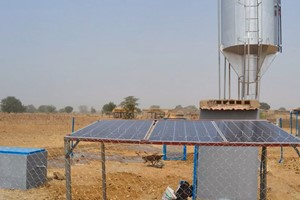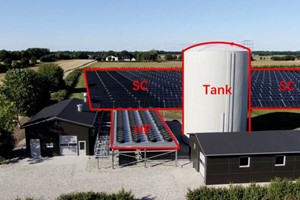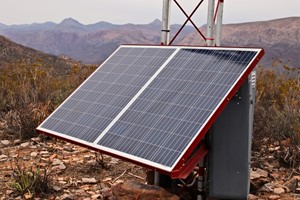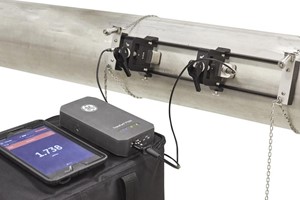In a collaborative effort to enhance access to clean water, the United Nations Development Programme (UNDP) Sudan, the State Water Corporation of Kassala, and Kassala Local Authorities have inaugurated two new solar-powered water pumps. This initiative is set to more than double the daily water supply in the Eastern and Southern sections of Kassala City, boosting it from 200,000 liters per day to an impressive 450,000 liters. The increased capacity will directly benefit the residents of Kassala, ensuring a more reliable and sustainable source of safe drinking water.
Addressing Persistent Water Shortages
The introduction of these solar-powered pumps is a significant step in addressing the persistent water shortages that have long plagued Kassala City. The enhanced capacity is expected to provide relief not only to the city's residents but also to the host communities and internally displaced persons (IDPs) living in the city and surrounding gathering sites.
Kassala City traditionally relies on boreholes located at the bank of the Gash River for its water supply, with the collected water stored in centralized tanks and redistributed throughout the city. However, consistent electricity supply has been a challenge, exacerbated by frequent power outages and the rising cost of fuel, leading to substantial water shortages.
Solar-Powered Solution to Water Crisis
The "Solar Systems for Water Pumps in Kassala State" project, funded by UNDP with additional support from the UNDP Crisis Bureau, marks a significant shift towards sustainable water management in the region. With the successful installation of the solar-powered pumps, Kassala City can now produce and continuously pump clean water, even during electricity outages. According to the State Water Corporation, this new system will increase daily water delivery from 200,000 liters to 450,000 liters.
"The water crisis in Sudan demands immediate and coordinated intervention," said Surayo Buzurukova, UNDP Deputy Resident Representative for Programme in Sudan. "In Kassala, our initiative moves beyond temporary relief to foster long-term water resilience. We are empowering communities to manage their water resources, ensuring access for generations to come."
Positive Impact on the Community
The impact of this project is already being felt. "The people of UNDP have worked with us a lot. Our stations used to run on electric power, and the power cuts per day lasted more than eight hours. Now the plant operates about 24 hours in the presence of solar energy. Water productivity has increased. We had areas that were suffering from thirst; now the problem of thirst and water has been solved," stated Al Bahi Mohammad Ahmed Al Bahi, Manager of the State Water Corporation of Kassala.
The solar-powered water pumps were officially handed over to the State Water Corporation of Kassala on August 8th. In addition, three more solarized water pumps have been commissioned to further enhance the water supply in Kassala City.
A Broader Commitment to Water Security
This project is part of UNDP Sudan's broader efforts to improve water security across the country. Since the onset of the conflict in April 2023, UNDP has been instrumental in establishing, rehabilitating, and solarizing over 30 water yards, providing over 850,000 people nationwide with approximately 13 million liters of clean water daily.
UNDP remains committed to working alongside local partners to deliver essential services and implement development interventions that foster long-term resilience, particularly in crisis-affected areas. Moving forward, UNDP will continue to prioritize projects that empower communities and contribute to peace, social cohesion, and sustainable recovery across Sudan.














